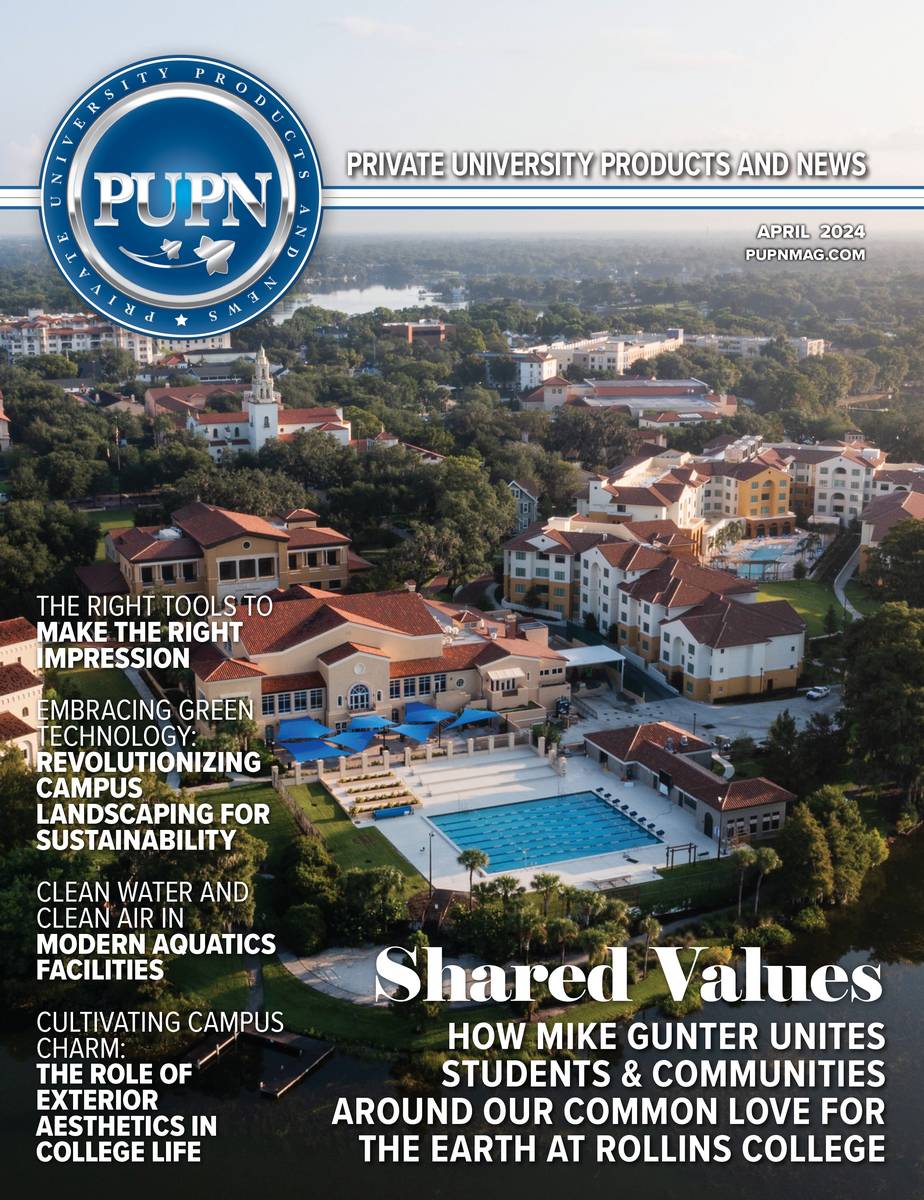Colleges and universities continue to seek out ways to increase sustainability and decrease waste across their campuses. Catawba College and College of the Atlantic (CoA) provide models for sustainable dining options that other institutions of higher education can consider emulating.
Catawba College
Located twenty-five miles northeast of Charlotte, Salisbury is among the oldest colonial towns in North Carolina. Its historic preservation includes five Local Historic Districts and ten National Register Historic Districts. The town is also home to Catawba College, which has been recognized on several occasions—the present school year included—for its commitment to engaged, hands-on education by Colleges of Distinction. Among these institutions, Catawba has been noted for its success in producing students with stellar critical thinking skills whose adaptability translates seamlessly into a dynamic, ever-changing workforce. Catawba was also named a North Carolina College of Distinction and has earned specialized recognition in the areas of business and education. The institution has been awarded for its Career Development efforts, as well.
By joining nearly three hundred other colleges and universities nationwide in supporting the American College and University Presidents Climate Commitment (ACUPCC), Catawba has likewise committed to addressing sustainability challenges that have become more urgent with each passing year. In doing so, the college has reduced greenhouse gas emissions and has integrated sustainable practices in countless areas of campus operations. Take, for instance, the $3.4 million renovation of Catawba’s dining hall. Having reopened in Fall 2022, the dining hall is sustainable from the ground up in terms of how it thinks about food, where that food comes from, and where it goes. The interior has been boosted with expanded seating, sustainable lighting and flooring, new ceilings, paint, and more. The new layout also includes a relocated and larger artisan deli and salad bar station as well as a new pure eats station which is designed with foods that exclude the top nine food allergens (fish, shellfish, tree nuts, peanuts, eggs, milk, wheat, sesame, soy, and gluten).
Chartwells is Catawba’s foodservice management team, and it has embraced how instrumental campus dining can be in shaping people’s experiences on campus. Not only does Chartwells provides tasty and nutritious food, but its commitment to sustainability is in alignment with that of Catawba College, as well. Students, faculty, and staff can participate in Chartwells’ reusable to-go box program; tray-less dining has been adopted to reduce excess waste; and in addition to conventional dishware, Chartwells offers compostable, disposable plates and utensils that can be used during the catering of campus-based events. Moreover, Catawba maintains a relationship with the nearby Gallins Family Farm to recycle campus food waste.
College of the Atlantic
CoA is a small, private liberal arts college in Bar Harbor on Mount Desert Island, Maine. In 2007, it was the first college to be carbon neutral, and it was among the first to divest fossil fuel holdings from its endowment. As such, CoA appears on the vast majority of lists which identify “top green schools.” The Princeton Review, for instance, has placed CoA at the top of its “Top 50 Green Colleges” listing for the past six years running.
The institution breathes sustainability. Not only is CoA the first of its kind in the U.S. founded to focus specifically on the relationship between humans and the environment—it offers a degree in one subject only: human ecology—but CoA pursues excellence in areas like the use of regional resources, waste diversion, and renewable energy, along with its sustainability-focused academics.
The campus dining program is an integral part of CoA’s sustainability efforts. For instance, students are encouraged to bring their own dining ware to meals outside of regular service hours in order to reduce the use of disposable items. Foodservice affects areas like the use of local vendors, waste reduction, and energy usage. All meals are made from scratch at CoA, with local and organic ingredients used where possible. Ample meatless offerings are available, and the meat that is used in meat-based dishes is humanely raised and sustainably sourced. The menu also incorporates dishes from cultures around the globe. A major component of the sustainability success story at CoA involves local product sourcing from the school’s two farms. Beech Hill is a certified organic farm comprised of six acres of fields in vegetable production, three small heirloom apple orchards, five greenhouses, and pastureland for pigs and poultry. Peggy Rockefeller Farms raises grass-based beef and lamb as well as certified organic pastured poultry. Certified organic fruits, berries, vegetables, and mushrooms are also harvested there.
Leftovers are made available at the next meal or the following day, and anything that remains is placed in a community refrigerator. Further efforts to reduce waste include an on-campus composting program; any remaining food waste that cannot be repurposed is sent to Agri-Cycle Energy, a regional food waste collection service that uses it to produce renewable energy. At the height of the pandemic, CoA closed its in-venue dining. One of the challenges that surfaced during this year-long period was how to maintain its culture of sustainability while providing an all-takeaway meal service. The solution was to source and use compostable dishware and utensils. The major upside of compostables is that very little goes to landfills.
At CoA, there is necessary emphasis placed upon seasonality in menu options. Animals raised on the farm and sent to an outside firm for slaughter and processing supply a substantial portion of the program’s meat needs—but produce availability is impacted by Maine’s chilly weather and its fairly short growing season, one that mostly overlaps with the summer break. This situation means that menu options fluctuate—for instance, winter staples like squash, potatoes, kale, and cabbage are used with frequency. For other schools, having kale on the menu every week could pose a problem, but this is not the case with students at CoA. They enroll at CoA in part because they believe in the benefits of sustainability, and they accept that the dining options will be impacted by seasonal weather. Because the student body is so small (approximately 360 in total), meals can be prepared on a case-by-case basis for students with soy and nut allergies, for example. Such meals have the student’s name included and can be picked up at an agreed upon time.
Aligning Academics with the Dining Program at CoA
Classes at CoA regularly visit the kitchen to interact or even instruct. For instance, a class learning about the ethnography of food is likely to use the kitchen one day per week during the winter term. The objective is to aid in the preparation of various ethnic or cultural dishes that are then served in the dining hall. One popular example is the Guatemalan-inspired fiambre salad. In fact, because many students work in the kitchen, they are allowed to take part in planning the menu. The kitchen thereby becomes a space not only of collaboration but of fun experimentation in which students may make two different dishes for everyone to enjoy. Menu planning on the whole is informal, and students working will be asked if there’s something they’d like to have, perhaps even a dish from home that they miss and wish to replicate.
Each term, CoA offers several courses in food system studies and sustainable agriculture. Options are available for students to complete research in these areas through classes, independent studies, and senior projects. CoA Foodprint is a course that allows students to study the conditions by which food on campus is produced, transported, and prepared, examining along the way who participates in this complex system. Students partner with CoA’s kitchen and farm managers, vendors, and food systems faculty to examine the college’s “foodprint.” Doing so allows them to apply what they have learned to local production and food security. With CoA’s Food Group and its Food Systems Group, students may also enjoy on-campus opportunities to participate in the annual Farm Day and the Farming Workshop Series, both of which offer community and student education about sustainable food systems.










